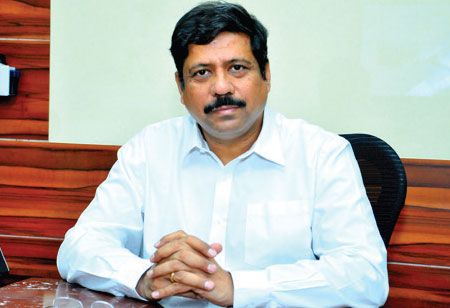
Smart Manufacturing Solutions For The Packaging Industry


Rajesh Khosla, CEO & President, AGI Glaspac, 0
In today's competitive food and beverage packaging market, adaptability is critical. Most firms aim for broad product varieties, including blends and sizing variations. Packing scales and process weighing systems are standard in the packaging industry, as they are in many others. These pieces of equipment are prone to malfunction and damage, for which manufacturers suffers losses. Inaccurate weighing scales lead to financial losses for the business due to over or under weighing of the material. There might be a financial loss in over weighing, while there would be regulatory fines or lost production time in under weighing. Therefore, scales and other equipment must be maintained well.
Digital change can be accelerated in the packaging industry. Digitalisation affects the entire production process and value chain as well as the packaging design itself. Intelligent packaging, fully automated packaging lines and digital value chains are the wave of the future. In my opinion, there's no way around it. Investing in a company's competence development can give it a significant competitive advantage. Active packaging and intelligent packaging are the types of smart packaging. Adding or removing components, such as oxygen absorbers, to the packaged food or its immediate surroundings to improve its shelf life or quality is known as active packaging. ‘Intelligent' functions like tracking the development, sensing a packaged food attribute or its immediate environment (e.g.Ph and temperature) and
communicating that information to the user are performed through intelligent packaging. Intelligent packaging includes applications that communicate with other packages, smart appliances or the Internet to offer customers unique content and digital experiences.
Innovative packaging has numerous advantages for food processors. Thanks to smart packaging, manu facturers can use connected packaging to comply with their product tracing and recall obligations as a part of their food safety management programs. Optical sensors (e.g. bar codes and QR codes), which decode printed symbols on packages are used widely. While omni directional decoding systems (such as RFID tags) are cost effective for transport packaging units like shipping cartons, they present cost and information management challenges for small packages. Creating RFID type symbols on packages that cost a little, like today's code dating technology, shows promise. While achieving this level of adaptability isn't easy, there are a few options that can help. Encompass Digital Mortgage Solution, Floify, LendingPad, Calyx Point Software and complete systems are available in today's automation technologies.
Typical Benefits of Smart Manufacturing Solutions in the Packaging Industry include:
•Tracking a serialised package and its production meta information by using a near field communication (NFC) device. This information can be shared with other participants in the value chain with NFC.
•Distinguishing and providing transparent evidence of quality standards through a technological layer
•Establishing control of production parameters in situ, reducing the incidence of production that does not meet specifications.
•Reducing costs of quality control laboratories
•Lowering the risk of damage to the brand when dealing with product recalls
Packing companies can identify their strengths and weaknesses with the help of data gathering techno logies that give them visibility into their produc tion processes. Quality, safety and compliance problems can be solved with the help of traceability and other smart manufacturing solutions.
Innovative packaging has numerous advantages for food processors. Thanks to smart packaging, manu facturers can use connected packaging to comply with their product tracing and recall obligations as a part of their food safety management programs. Optical sensors (e.g. bar codes and QR codes), which decode printed symbols on packages are used widely. While omni directional decoding systems (such as RFID tags) are cost effective for transport packaging units like shipping cartons, they present cost and information management challenges for small packages. Creating RFID type symbols on packages that cost a little, like today's code dating technology, shows promise. While achieving this level of adaptability isn't easy, there are a few options that can help. Encompass Digital Mortgage Solution, Floify, LendingPad, Calyx Point Software and complete systems are available in today's automation technologies.
Typical Benefits of Smart Manufacturing Solutions in the Packaging Industry include:
•Tracking a serialised package and its production meta information by using a near field communication (NFC) device. This information can be shared with other participants in the value chain with NFC.
•Distinguishing and providing transparent evidence of quality standards through a technological layer
•Establishing control of production parameters in situ, reducing the incidence of production that does not meet specifications.
•Reducing costs of quality control laboratories
•Lowering the risk of damage to the brand when dealing with product recalls
Packing companies can identify their strengths and weaknesses with the help of data gathering techno logies that give them visibility into their produc tion processes. Quality, safety and compliance problems can be solved with the help of traceability and other smart manufacturing solutions.
